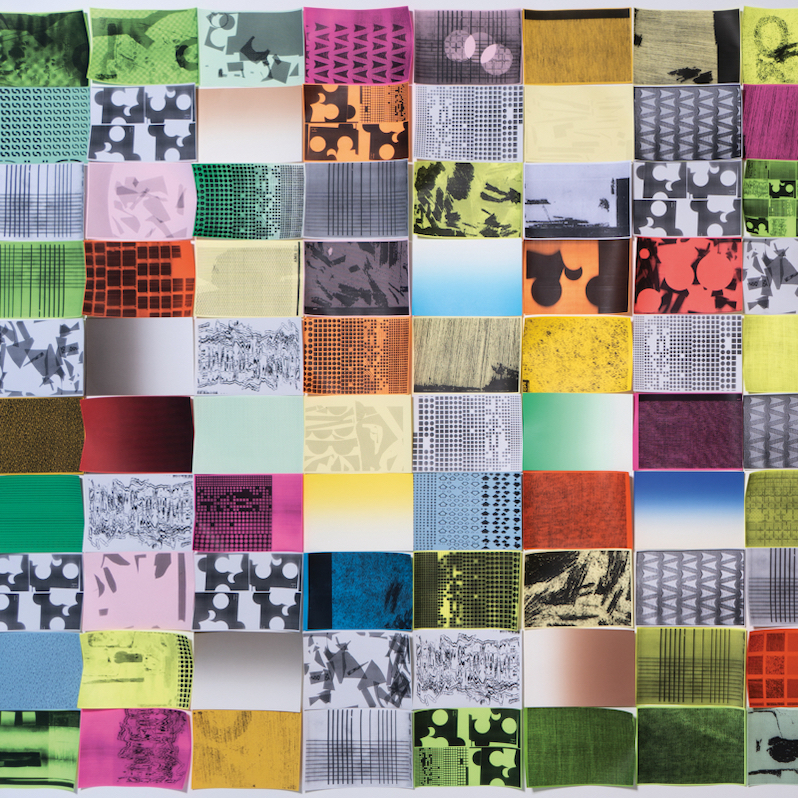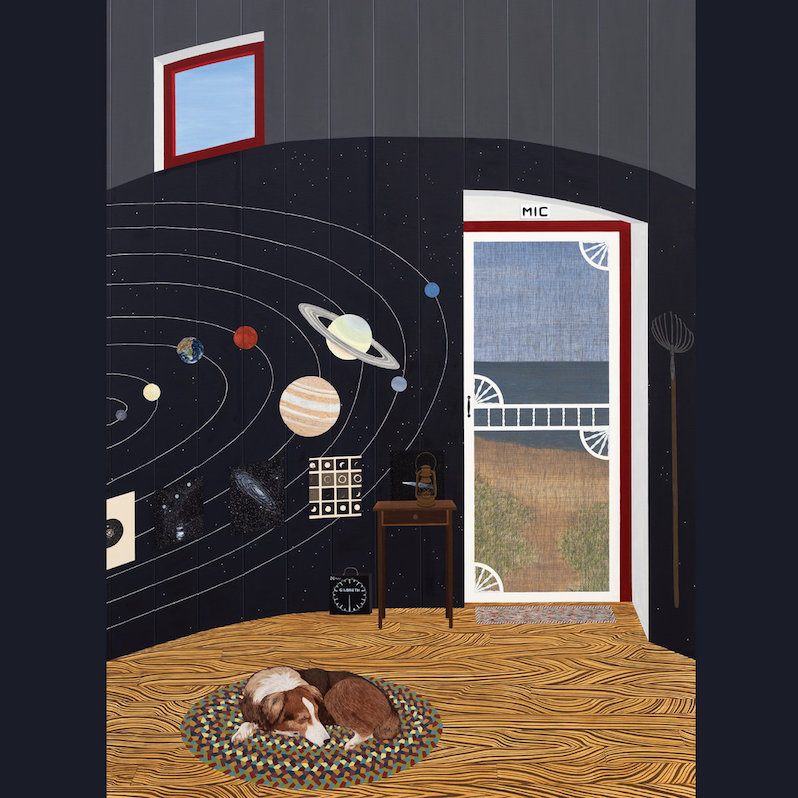Four Tet : Three

As Four Tet‘s Three opened up for me, I was reading Virginia Woolf in a cafe. This is important, I think; my first attempts to listen to this record, unfruitful, had be sitting pensive at my desk, staring into the middle distance, eyes opening and closing to match the ebb and flow of my focused attention, but I found the music too relaxed and ambient without being ambient, so to speak, to make much of an impression. I was prepared, after those first few listens, to jot down a disappointed note, something that made me unhappy given what Kieran Hebden’s music had meant to me in my teens and twenties. The last record, prior to this one, that I spent significant time with was 2010’s There Is Love In You, an album that recurred in swirls and eddies through my tumultuous twenties, scoring many late nights of drinking and then cold sobriety, studious thought and manic-depressive unfurling spirals. Writing a bum review would have in turn bummed me out. No one wants to deliver bad news.
But something clicked, gave strong resonant hum, between the slippery tides and brackish waters of Woolf’s masterpiece The Waves, a novel which is agonizing in its virtuosity, and the gentle whitecaps and sandy hiss of Three. This imagistic pull is something that often unlocks records for me, paints the picture nearly literally. Here, this most recent Four Tet record made itself clear to me, like a gentle breeze pushing aside a fog bank, sending it back to the sea. There’s a unique somnolence to staring out half-drunk onto open water in night time, a nocturnalist reflectionism that, like the Buddha in its gentility, peels back our skin and reveals things to us, remarking but not judging. It’s easy to imagine this record scoring a rousing conversation, not marked in its intensity by its volume but by its intimacy. There is a continuous murmuring aspect to the music on Three, a usage of sound textures that, slowed to half-speed, would make an engrossing ambient record but here instead feel spurring. It lacks the direct energy and drive of a techno, house or footwork record, implies the lingering presence of hip-hop in certain syncopated drum patterns but doesn’t produce full rap beats so to speak, even as the shape of what constitutes a beat fit for bars is constantly expanding.
It’s a deeply melodic record, unsurprising given the pedigree of Four Tet’s body of work, but the implications of the melodies, their subtle shifts and textural passages, feel perhaps better suited for a live set than on record. This, admittedly, is a persistent rub of electronic producers; there has yet to be a fully satisfactory recording that captures precisely what it feels like to be in a rave, or a club, or taking in a noise or ambient or chill-out/downtempo set. Warehouses and boiler rooms and even punk basements produce an atmosphere that feels at once ephemeral and oppressive, feeling undeniable and fully bodily in their natural settings and strangely absent when presented recorded work, which is in no way different from what was played but suddenly lacks that somatic/psychic heft. “Daydream Repeat,” a wisely-selected single and closer of side A, does its best to bridge this gap, keeping a churning techno beat underneath the gentle lapping of Mary Lattimore-like harp plucks. Perhaps it’s the King Crimson fan in me, but this cut in particular feels terribly enticing to hear live players, be they drummers or guitarists or keyboard players, dig into it with meaty, noisy, clattering improvisations. It’s sometimes so tempting to fuck up a beautiful thing with something ugly.
The back half of the record picks up the melodic intent of the first half, swapping in guitars on a number of tracks. Admittedly, its a jarring choice, one that draws a great deal more focused attention than the lapping, and its similarity to certain radio rock and Recovery-era Eminem tracks doesn’t do it any favors in my book, but later tracks like “31 Bloom” and the closer “Three Drums” see the return of electronic staples like side-chained synths and jazzy drum samples over vinyl hiss and warm organs. Ultimately, what ends is an album that doesn’t seek to impress itself upon you; it wants to slip into the background, score thoughts and moods, conversations and recollections. It makes making a proper assessment of it tricky; this is a record that will reveal its worth, its ability to accomplish itself, in months and years, not days and weeks. At least in the now, though, its gentle waters provide a comforting warmth.
Label: Text
Year: 2024
Similar Albums:
Four Tet : Three
Note: When you buy something through our affiliate links, Treble receives a commission. All albums we cover are chosen by our editors and contributors.
Langdon Hickman is listening to progressive rock and death metal. He currently resides in Virginia with his partner and their two pets.




